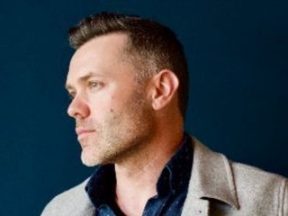Mike Tecku first appeared on this podcast in 2019 as an Amazon marketplace seller. Shortly afterward, he sold that business, a maker of floormats. He retired, became bored, and in 2022 launched Momentum, a direct-to-consumer nutritional shake producer. He and I discussed that venture last year in his second appearance.
He’s back. Momentum Shake is flourishing, as is Tecku. He’s evolved from the nuts and bolts of making money to achieving a purpose, building a team, and self-improvement. “If I’m not growing, I’m dying,” he told me.
Our entire audio conversation is embedded below. The transcript is edited for length and clarity.
Eric Bandholz: Your entrepreneurial journey is impressive.
Mike Tecku: Growth gives me meaning and a sense of being alive. If I’m not growing, I’m dying. The American dream of not having to do anything runs counter to human nature. When I retired, I got good at golf. I read many books but could not shake the urge to solve problems. I’d be in a store and think, “This is an interesting product. I wonder if I could make this.”
I got depressed when I wasn’t working on anything. I could feel myself shrinking. About a year into that, I decided I needed to re-embrace being an entrepreneur. That’s just who I am. Those are my gifts. I wanted to use my gifts and strengths, and now I had the privilege of using them in a way that I wanted, not just to survive or make money.
The world is constantly changing. To make something perfect is impossible, but you can pursue it by continually adjusting. The farther you get along, the more precise the destination is, and the more attuned you are to your goal. You gain knowledge and make better decisions. When you’re really into something, you’re continually growing and perfecting your art.
Bandholz: How does a company strive for perfection?
Tecku: You must develop trust with your customers so they know you have their best interest at heart. If we change the flavoring of our shakes, customers worry we’re making it cheaper when the reality is the opposite. You must be transparent with customers and communicate that you want to add more value without increasing their costs. It’s essential to zoom out beyond supply and demand. What advantage can you bring to the market besides making more money?
I want to produce a product 10 times better than everybody for the same price. Most businesses are just media and marketing platforms. They don’t touch the product. If they’re doing anything at all, they’re selling commodities. I want to make something that is a masterpiece and stacks much value into it.
That wasn’t happening with our outsourced manufacturer. I love those people, but they can’t innovate at the speed I want. I can cut costs by 30% when I take over manufacturing. I can shrink cash flow, increase quantity, reduce costs, and improve quality. The only way to do that is through owning the manufacturing process.
Bandholz: What are the pitfalls of in-house manufacturing?
Tecku: The first step is believing it’s doable. I spent 10 years thinking manufacturing was complicated and beyond my expertise. But I had to start questioning myself. Why can’t I assemble a team of intelligent, hardworking individuals? Why can’t I solve those problems?
The goal is to make manufacturing easy. If I can build something simple and scalable, it will be more secure and reliable. I like to forecast five to seven years down the road. What are my goals? I want to scale to a hundred million dollars. What does that look like in the number of units I need to make a day and the machines capable of that?
I’m buying machines to simplify and reduce the chance of error. We can’t eliminate mistakes, but we can streamline processes, steps, and inputs. The machines I’m buying should be able to make a thousand bags an hour with one employee. That’s a scalable system.
Bandholz: You have a single SKU earning thousands of dollars monthly. You’re not touching it. There’s beauty in that.
Tecku: It is beautiful because it frees me for growth and improvement. Recall the old phrase, “Work on your business, not in it.” That can’t change. You have to be on top looking at the pieces. My job is decision-making. I want two hours of hyper-focused thinking every day.
Constantly executing is not the best use of my skills. Some people are way better at it. I consider all components of the business to be assets. The manufacturing facility I’ve been building for the last six months is an asset. I want it to run perfectly without me. That involves the machines, the space, the team — every decision.
Bandholz: I struggle with shifting from the execution role into strategy and decision-making.
Tecku: I try to check with my team to see if they need something from me. I have to remind myself this is what they’re good at and that they appreciate my trust in them. If you want to create independent people who think for themselves, you have to let them fail. My job is to determine the next step. There’s no right path. It requires a lot of walking around, reading books, talking to folks, and paying attention.
Bandholz: Where can folks follow you?
Tecku: Our site is MomentumShake.com. I’m on LinkedIn.




